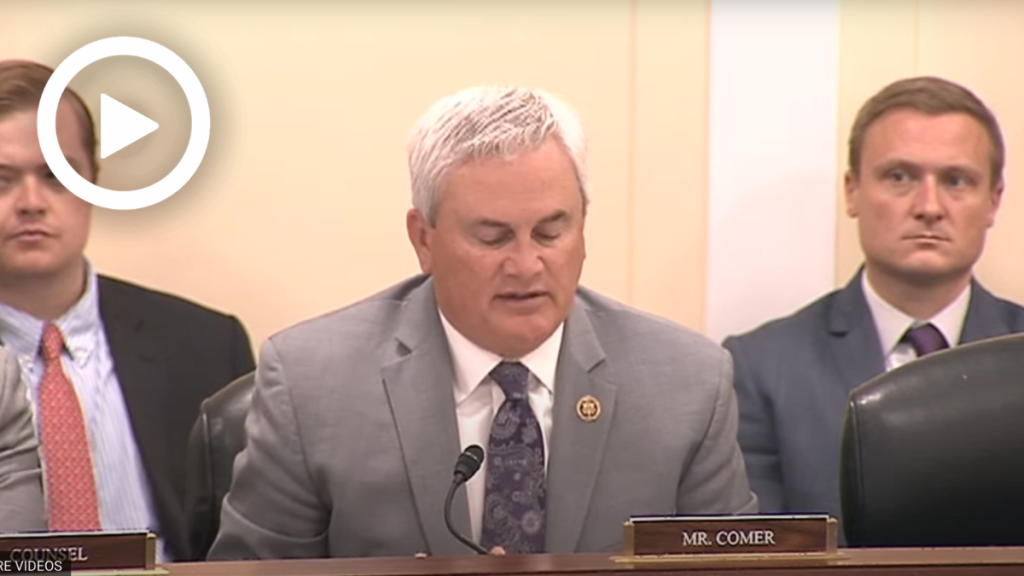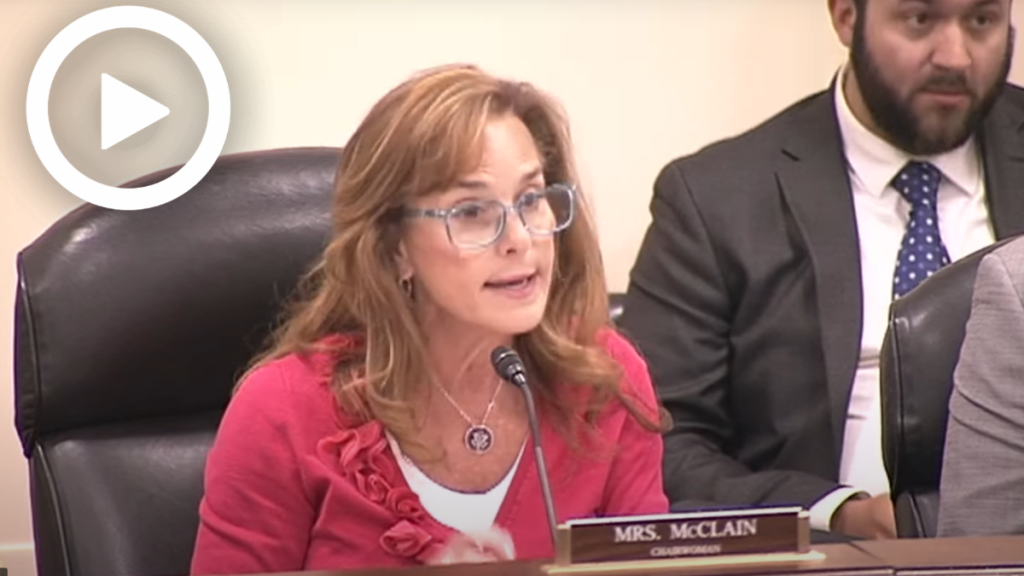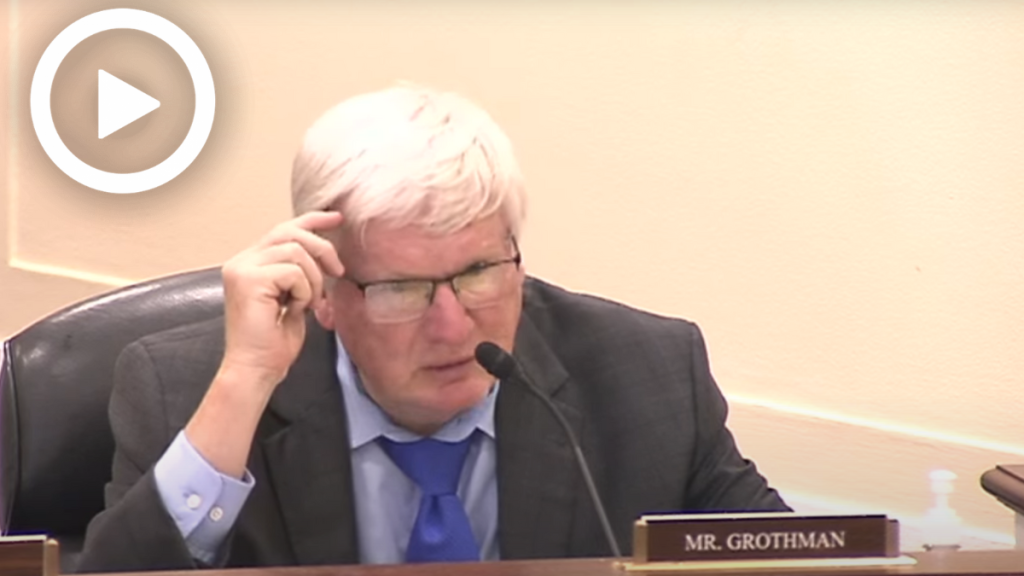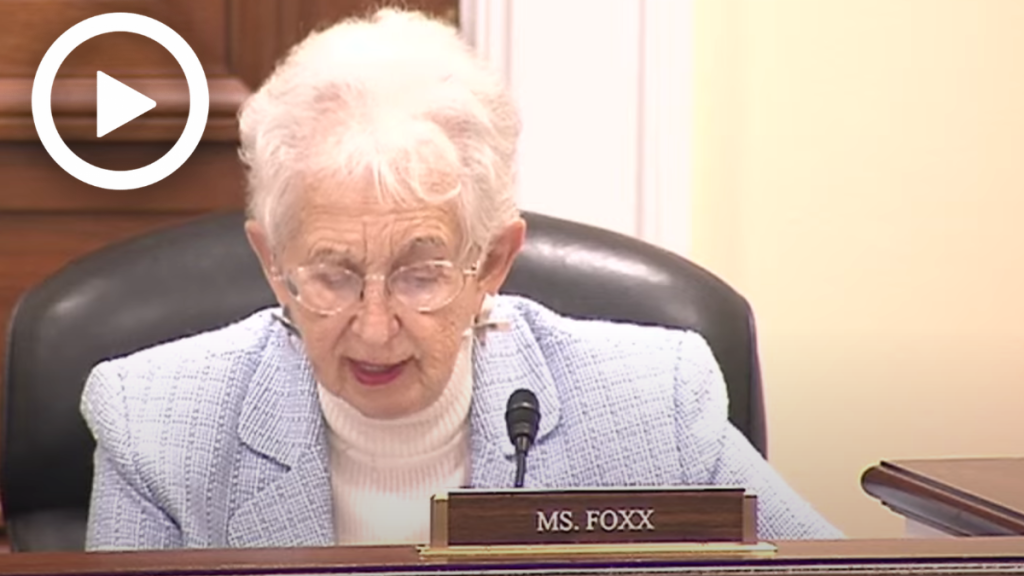Hearing Wrap Up: FDA’s Failure to Regulate CBD Threatens Consumer Access to Safe Products
“The lack of action has cast a shadow over the industry”
WASHINGTON—The Subcommittee on Health Care and Financial Services yesterday held a hearing titled “Hemp in the Modern World: The Yearslong Wait for FDA Action” to examine the failures of the Food and Drug Administration (FDA) to regulate CBD and hemp-derived products. Despite the 2018 Farm Bill legalizing the growth and sale of hemp and hemp-derived products, the FDA has refused to acknowledge that it has the authority to regulate. The FDA must take action to regulate CBD to create certainty for the industry, support the economy, farmers, and businesses, and ensure the safety of products.
Key Takeaways:
The FDA has refused to regulate hemp-derived products and CBD or even acknowledge that it has the authority to regulate it.
- “Unfortunately, the U.S. hemp industry has been struggling considerably in the last few years. This turmoil is due in large part to decisions made by FDA,” Jonathan Miller, General Counsel at the U.S. Hemp Roundtable, said during his opening testimony.
FDA’s refusal to regulate CBD has suppressed the ability for good faith manufacturers to engage with consumers, while letting bad actors flood the market with potentially unsafe products and intoxicants.
- Widespread usage of CBD products containing unknown contaminants has led to children overdosing and accidentally ingesting THC products.
- “Self-regulation is not sufficient. Federal regulation is necessary to ensure that all products in the marketplace maintain the highest safety standards,” said Richard Badaracco, President-Elect of the Kentucky Narcotic Officers, during the hearing.
The 2018 Farm Bill allowed for the cultivation, sale, and transportation of hemp-derived products, and removed such products from Schedule I status under the Controlled Substance Act, creating a new system of legalized hemp production.
- “When Congress passed the 2018 Farm Bill, it explicitly legalized the sale of hemp and its derivatives such as CBD,” Mr. Miller noted.
The public needs the FDA to do its job and regulate CBD for the benefit of industry, farmers, businesses, and consumers alike.
- “Without a federal regulatory pathway for requiring such standards, economic opportunities for U.S. hemp farmers will be diminished and consumers will not have access to safe, quality products,” said Mr. Miller.
Member Highlights:
Chairman James Comer (R-Ky.) asked witnesses whether there is enough safety data to support regulation.
Chairman Comer: “Has the FDA’s lack of action impacted the hemp industry?”
Mr. Miller: “Yes. As I mentioned earlier, the lack of action has cast a shadow over the industry. It’s kept a lot of big box stores from carrying products that they otherwise would. It’s kept a lot of big food and beverage companies from adding CBD to their mixes. As a result, there was a decrease in demand when the supply went way up. As you’ve seen by the chart I shared earlier, the price has collapsed, and farmers are bearing the burden.”
Chairman Comer: “Given the availability of scientific data related to CBD, would you agree that the FDA is not doing its job here by saying there isn’t enough data to proceed?”
Mr. Miller: “Correct. There’s enough data to pursue a regulatory pathway for dietary supplements and food and beverage additives.”
Subcommittee Chairwoman Lisa McClain (R-Mich.) discussed how regulations would support the hemp industry from the top to the bottom of the supply chain.
Rep. McClain: “Can you explain why regulations in this instance would not help industry?”
Mr. Miller: “No, regulation will help industry because it would help stabilize the markets. These big box stores and big food companies would start carrying their products, the prices would go up, and it would give consumers a lot more confidence that these products are safe. For right now, they’re taking a risk in buying them. Regulation would be really good for business.”
Rep. McClain: “What could the FDA do right now?”
Mr. Miller: “The first thing is they could immediately is start regulating these products as dietary supplements and food and beverage additives.”
Rep. Glenn Grothman (R-Wis.) pointed out the economic impact of the FDA regulating CBD as a food supplement or additive.
Rep. Grothman: “If CBD is regulated as a food supplement or additive by the FDA, what would the economic consequences be?”
Mr. Miller: “There are independent studies, the Brightfield group is one of those economic groups, that claim that that difference could be a five-billion-dollar year difference if these regulatory pathways are made clear.”
Rep. Virginia Foxx (R-N.C.) examined the dangers associated with unregulated CBD products without appropriate product labeling requirements or age limits.
Rep. Foxx: “What are the dangers or problems associated with consuming CBD products that may contain widely varying levels of intoxicants?”
Mr. Badaracco: “With children, having to go to the emergency room, which there’s reports which I referenced to that we’re starting to get now. You can add agitation, increased heart rate, nausea, unconsciousness, things of that nature.”
Rep. Foxx: “Can the average person tell with any confidence if a CBD product contains intoxicants?”
Mr. Badaracco: “No, not really. Not right now. Not without having a specific labeling of what exactly is in the substances.



